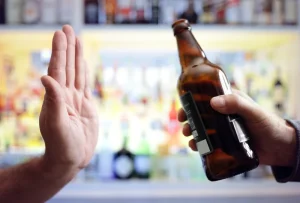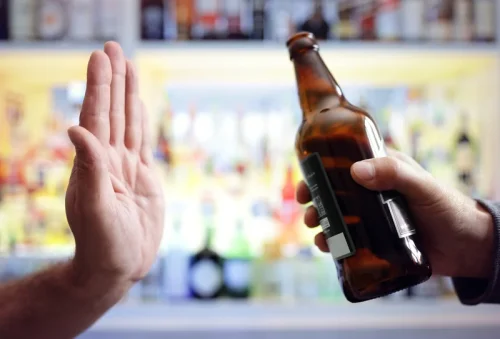Alcohol Intolerance: Symptoms, Sudden Onset & Later in Life Intolerance
Alcohol Shakes: Withdrawal or Hangover Shakes?
December 30, 2020363 Senior Application Developer jobs in Chicago
March 29, 2021
Alcohol intolerance is caused by a genetic condition in which the body can’t break down alcohol efficiently. The only way to prevent these uncomfortable reactions is to avoid alcohol. Sulfites naturally found in wine and beer can cause asthma symptoms in people who are sensitive to sulfites. In rare cases, a reaction can be severe and lead to anaphylaxis. Antihistamines like Allegra (fexofenadine) and Zyrtec (cetirizine) can help alleviate histamine intolerance symptoms. However, the best treatment is the avoidance of histamine in the foods we consume, including alcohol.
- It won’t go away, but by taking some precautions, you can avoid the symptoms and enjoy a healthy, active life.
- Hodgkin lymphoma is a blood cancer that can affect a person’s lymphatic system.
- In very rare cases, reactions to alcohol may be a sign of Hodgkin’s lymphoma.
- The main risk factor for having a problem with ALDH2 is being of East Asian descent, especially Chinese, Korean or Japanese.
- If the reactions return with specific drinks, then you know which ones cause problems for you.
What is the difference between alcohol allergy and intolerance?
For a minor reaction, over-the-counter or prescription antihistamines might help reduce symptoms, such as itching or hives. When you drink alcohol, your liver first breaks down alcohol into a toxic chemical called acetaldehyde. Your body uses an enzyme called aldehyde dehydrogenase, or ALDH2, to break down acetaldehyde. However, in some people, ALDH2 does not work correctly, resulting in alcohol intolerance. Common symptoms of alcohol intolerance include skin flushing, nasal congestion, and headaches. The only way to treat alcohol intolerance is to avoid alcohol or, at the very least, limit alcohol consumption.
Medical Professionals

While there is no way to treat this condition, your healthcare provider can talk with you about ways to reduce the negative effects of alcohol intolerance. Alcohol flushing syndrome is a major sign of alcohol intolerance. Your face, neck what causes alcohol intolerance and chest become warm and pink or red right after you drink alcohol. Distilling a drink usually removes any naturally occurring yeast or yeast by-products from the liquid. Because of this, distilled spirits are generally safe for people with yeast allergies. If they don’t, you may experience a so-called “red wine headache” and other symptoms.
Histamine intolerance
It is important to seek specialist advice if your suspect some sort of alcohol intolerance, as alcohol intolerance and alcohol allergy are commonly confused and misdiagnosed. As a person ages, certain health conditions or medications may mean they have different reactions to alcohol than they previously did. However, if they want to have tests to check their alcohol intolerance, they can contact a doctor to ensure they are drinking safely. Some people may be unable to drink alcohol without experiencing immediate feelings of sickness, or they may develop this over time after a prolonged period of drinking. If you drink a beverage that causes a mild reaction, over-the-counter antihistamines might help relieve symptoms.

If you have any of these symptoms or you are with someone who does, you should immediately seek emergency help by calling 911. Sulfites interact with stomach acid to release an irritant gas called sulfur dioxide, which can cause airway irritation in susceptible individuals. Possible alternatives to wine and grape-based spirits include Japanese plum wine, which has an appealingly sweet taste. Although these tests may be less expensive and more convenient than visiting a medical facility, they are not always as reliable. This is because they rely on self-collection of the sample, which can sometimes lead to cross-contamination of the swab.


However, acetaldehyde is still highly toxic and can significantly increase the risk of cancer. Very rarely, a person may have a “true” alcohol allergy, meaning they are allergic to the ethanol in alcohol. In people with true alcohol allergy, as little as 1 milliliter (mL) of pure alcohol can trigger an allergic reaction. Having a mild intolerance to alcohol or something else in alcoholic beverages might not require a trip to a doctor. Simply avoid alcohol, limit how much you drink or avoid certain types of alcoholic beverages. Alcohol intolerance can cause immediate, uncomfortable reactions after you drink alcohol.
- However, a doctor may also be able to diagnose alcohol intolerance based on symptoms and a person’s family history.
- People with this condition usually experience swelling in the lymph nodes in areas including the neck, armpits, or groin.
- Alcohol flushing syndrome is a major sign of alcohol intolerance.
- There are several ways for a doctor to diagnose an alcohol allergy or intolerance, including the approaches below.
- Alcohol intolerance is an immediate unpleasant reaction to consuming alcohol.
Top doctors in ,
Normally your body produces an enzyme called diamine oxidase (DAO) to break histamine down. If your body doesn’t produce enough active DAO, you may react to histamine in foods and beverages. It’s also found in many foods and beverages, especially fermented products. For example, aged cheese, smoked meats, sauerkraut, wine, and beer tend to be high in histamines. Dr Fox recommends avoiding alcohol to treat alcohol intolerance. In an ideal world, you would abstain from consuming alcohol completely.
- It’s important to consult with a healthcare provider, who can provide appropriate testing and treatment options based on a detailed medical history and observation of symptoms.
- As a result, people with asthma are also more likely to experience nasal congestion after drinking alcohol.
- This type of test will not show someone if they have a genetic alcohol intolerance.
- If someone experiences a severe allergic reaction, they should go to the emergency room immediately.
Alcohol can cause a great level of discomfort if someone drinks it without being aware they have alcohol intolerance. Continuing to drink alcohol while knowing you are intolerant (or allergic) can also have severe health consequences. Moreover, if a person has a serious reaction after drinking alcohol, they should consult a doctor sooner to determine what may be causing their symptoms. Alcohol intolerance may cause a person to experience immediate reactions after they drink alcohol, or they may develop it hours after, the day after, or even later in life.
Someone with an alcohol allergy has an allergic reaction when exposed to alcohol or to a component of alcohol. Often, it is not actually an allergy to alcohol itself but to a component of the alcohol, like grapes or hops. The symptoms are caused because the body’s immune system becomes overactive and attacks something found in the alcohol. No, alcohol intolerance is not the same as being intoxicated or drunk.
